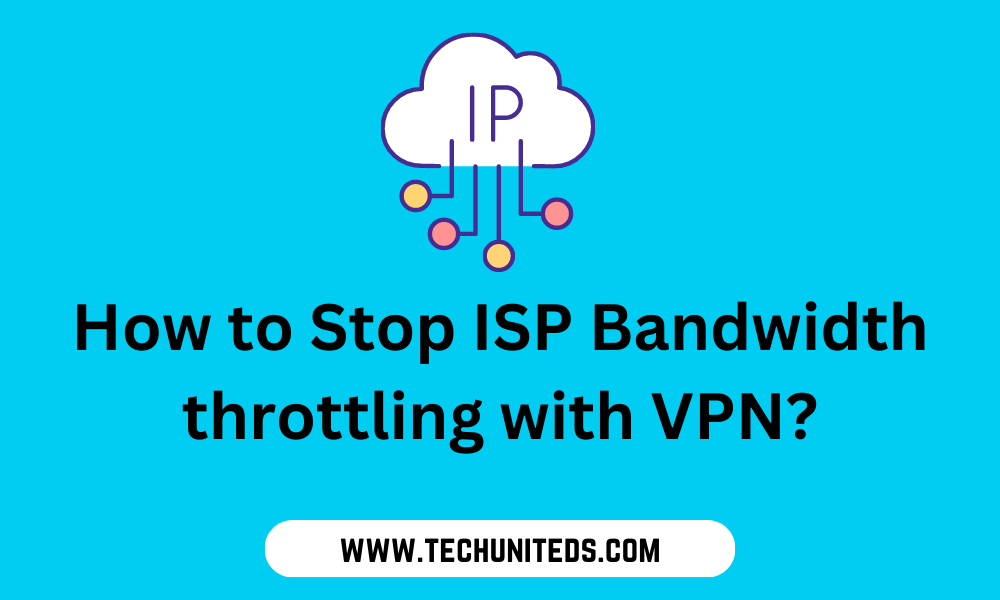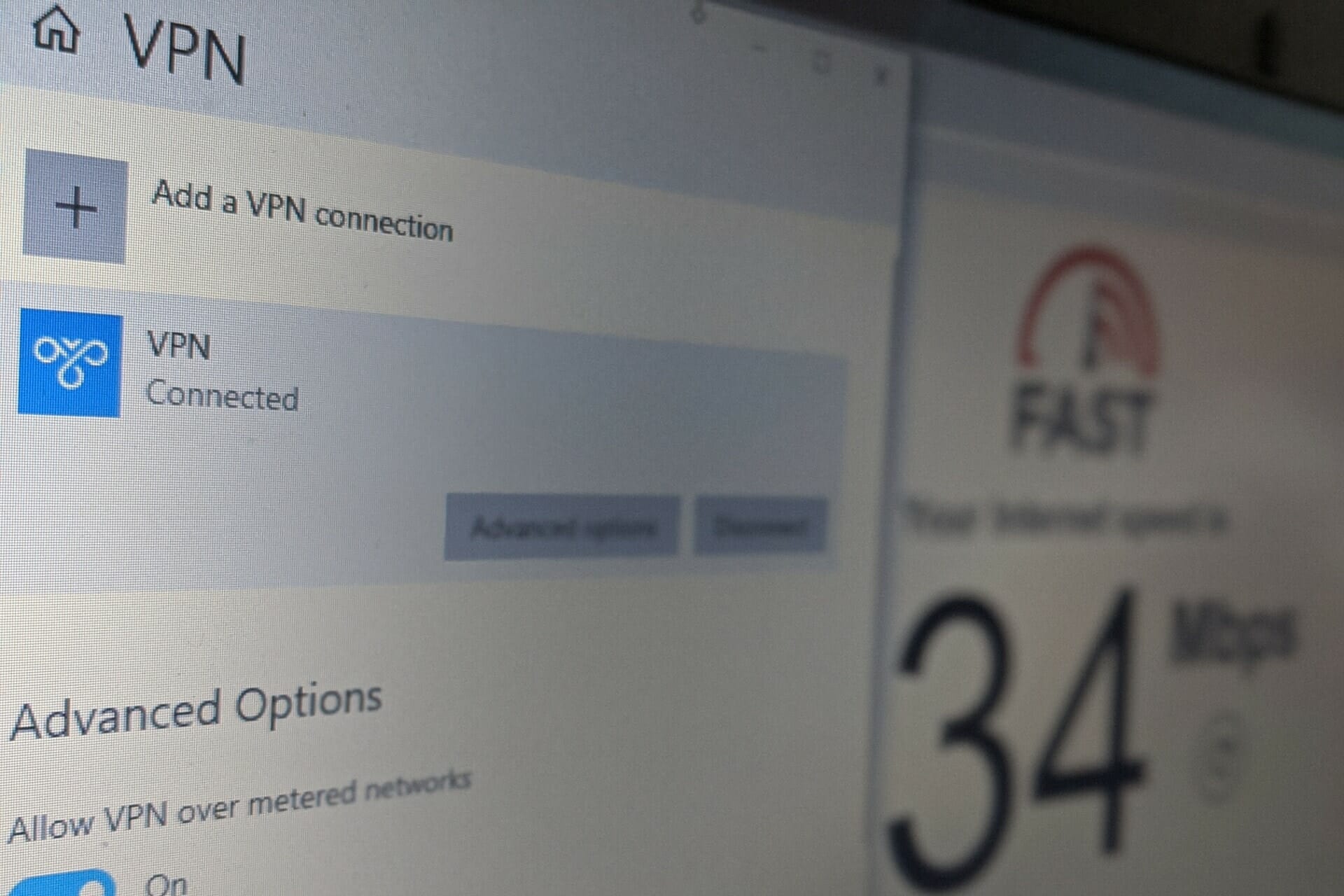Lessons I Learned From Info About Can VPN Stop Throttling

How To Stop ISP Bandwidth Throttling With VPN In 2024 Best Services
Can a VPN Really Stop Throttling? Let's Investigate!
1. Unmasking the Throttling Mystery
Ever feel like your internet speed mysteriously slows down, especially when you're streaming your favorite show or downloading a large file? It might not be your imagination. It could be throttling, a practice where your internet service provider (ISP) intentionally slows down your connection speed under certain circumstances. But can a VPN really stop throttling? Well, it's not always a simple yes or no. Think of it like asking if a raincoat will always keep you dry — it depends on the storm!
ISPs throttle internet speeds for a variety of reasons. Sometimes it's due to network congestion during peak hours, like when everyone's home from work and school. Other times, it's because you're using a lot of data or engaging in activities that consume a lot of bandwidth, like streaming or gaming. And, let's be honest, sometimes it's just part of a plan to encourage you to upgrade to a more expensive, higher-bandwidth package.
Regardless of the reason, throttling can be incredibly frustrating. Imagine finally settling in to watch that new movie, only to be met with constant buffering. Or trying to win that online game, but lagging behind everyone else. It's enough to make you want to throw your router out the window! That's where the promise of a VPN comes in, offering a potential shield against this digital slowdown.
So, before we dive deeper, understand that throttling isn't always malicious. ISPs are also trying to maintain the best experience for all users. But sometimes, it just feels like they're singling you out, doesn't it? Let's unravel this VPN mystery and see if it's the silver bullet against throttling.

How a VPN Can (Potentially) Thwart Throttling
2. VPNs
Here's where things get interesting. A Virtual Private Network (VPN) works by encrypting your internet traffic and routing it through a server in a location of your choosing. This means your ISP can't see what you're doing online, including the specific websites you're visiting, the videos you're streaming, or the files you're downloading. It's like wearing a digital cloak of invisibility.
Because your ISP can't see what you're up to, they can't easily single you out for throttling based on your activities. If they're throttling specific types of traffic (like streaming video), they won't know you're streaming video. This, in turn, could prevent them from slowing down your connection. Its like hiding the evidence, really.
Think of it this way: imagine you're driving a car with tinted windows. The police can't see who's inside or what you're doing, so they can't pull you over for something specific unless you give them a reason to. A VPN works similarly, obscuring your online activities from your ISP's prying eyes. However, its not a foolproof shield, as there are scenarios where throttling might still occur. We'll get to that shortly.
However, it's important to note that a VPN doesn't magically increase your internet speed. It simply prevents your ISP from intentionally slowing it down. If your internet is slow due to other factors (like network congestion or a poor connection), a VPN won't fix that. But if throttling is the culprit, a VPN might be just what you need to get back to enjoying a smooth online experience.
When a VPN Might Not Stop Throttling
3. The Limits of the VPN Shield
Okay, so a VPN sounds like a superhero fighting against throttling, right? Not always. There are situations where a VPN might not be able to completely stop throttling. For example, if your ISP is throttling all traffic regardless of its type (a rare but possible scenario), a VPN might not make much of a difference. Your ISP might simply see that you're using a lot of data and throttle you based on that, regardless of what you're doing with that data.
Another factor to consider is the VPN server itself. If the VPN server you're connecting to is located far away or is experiencing high traffic, it can actually slow down your connection. In this case, using a VPN might actually make your internet experience worse, even if it's preventing throttling. It's like taking a longer, more scenic route to avoid traffic, only to find that the scenic route is also congested!
Furthermore, some ISPs are getting smarter about detecting VPN traffic. They might not be able to see what you're doing, but they can see that you're using a VPN. In some cases, they might throttle VPN traffic specifically. This is a cat-and-mouse game, with VPN providers constantly developing new techniques to evade detection. But it's a reality you should be aware of.
Finally, always remember that using a VPN adds a layer of encryption and routing, which inevitably adds some overhead. Even under ideal circumstances, you might experience a slight decrease in speed when using a VPN compared to not using one. Its usually negligible, but its worth keeping in mind.
![How To Stop ISP Throttling Without VPN [StepbyStep] How To Stop ISP Throttling Without VPN [StepbyStep]](https://vpncentral.com/wp-content/uploads/2025/02/bitget-vpn-768x512.jpg)
How To Stop ISP Throttling Without VPN [StepbyStep]
Testing the Waters
4. Experimenting with VPNs
So, how do you know if a VPN will actually help with throttling in your specific situation? The best way is to test it out! Before you even think about subscribing to a long-term VPN plan, most reputable providers offer either a free trial or a money-back guarantee. Take advantage of these offers to see if a VPN makes a noticeable difference in your internet speed and overall experience.
Start by running a speed test with your VPN disabled. Note your download and upload speeds. Then, connect to a VPN server (ideally one that's geographically close to you) and run the speed test again. Compare the results. If you see a significant improvement in speed while the VPN is enabled, it's a good indication that your ISP was throttling your connection.
Also, pay attention to your browsing and streaming experience. Does video buffering decrease? Do web pages load faster? Are your online games less laggy? These are all subjective indicators that a VPN might be helping. Remember to test at different times of the day, as throttling often varies depending on network congestion.
Don't be afraid to experiment with different VPN servers and locations. Some servers might perform better than others, and you might find that connecting to a server in a different region actually improves your speed. The key is to be patient and persistent, and to find the configuration that works best for you. Finding the right VPN and the right server is a bit like finding the perfect pair of jeans — it takes time and effort, but it's worth it in the end!

Choosing the Right VPN
5. Selecting a VPN
If you've decided to give a VPN a try, it's important to choose a reputable provider. There are countless VPNs available, and not all of them are created equal. Look for a VPN that has a large network of servers in multiple locations, strong encryption protocols, and a clear privacy policy. After all, you're entrusting them with your data, so you want to make sure they're trustworthy.
Read reviews and compare features. Consider factors like speed, security, ease of use, and customer support. Some VPNs are specifically designed for streaming, while others are better for privacy and security. Choose one that meets your specific needs and priorities. And be wary of free VPNs. They often come with hidden costs, like intrusive ads or data logging.
Consider VPN protocols. WireGuard and OpenVPN are generally considered to be among the fastest and most secure. The protocol used plays a big role in the overall performance. A VPN that supports these protocols should result in a better experience.
Don't just choose the first VPN you see. Do your research, read reviews, and compare features. A good VPN can make a world of difference in your online experience, but a bad one can actually make things worse. Take the time to find the right one for you.

FAQ
6. Your Questions Answered
Q: Will a VPN always stop throttling?
A: Not always. It depends on how your ISP is throttling and the quality of your VPN. If they're throttling specific types of traffic, a VPN can help. But if they're throttling all traffic or detecting VPN usage, it might not make a difference.
Q: Can a VPN actually slow down my internet speed?
A: Yes, it's possible. If the VPN server is far away or congested, it can add latency and reduce your speed. Choose a server that's geographically close to you for the best performance.
Q: Are free VPNs a good option?
A: Generally, no. Free VPNs often come with limitations, like data caps, slower speeds, and intrusive ads. They might also log your data or sell it to third parties. It's usually better to pay for a reputable VPN.
Q: How do I know if my ISP is throttling my internet?
A: Run a speed test with and without a VPN. If you see a significant improvement in speed when the VPN is enabled, it's a good indication that your ISP was throttling your connection.
